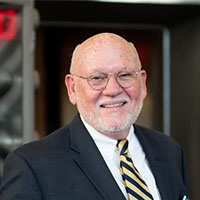Derby Criminal Lawyer, Connecticut
Sponsored Law Firm
-
 x
x

Click For More Info:
-
Andrew M Amendola, Attorney at Law
591 Thompson Avenue East Haven, CT 06512» view mapAccident & Injury, Criminal, Estate, Real Estate Where Every Client Matters
Let Andrew M Amendola, Attorney at Law handle all your legal needs today@
800-942-4780
James J Ruane
Motor Vehicle, Criminal, Consumer Rights, Business
James J. Ruane is a practicing lawyer in the state of Connecticut.
James O Ruane
Motor Vehicle, DUI-DWI, Criminal
Jay Ruane is a practicing lawyer in the state of Connecticut.
Jonathan Andrew Wetmore
Lawsuit & Dispute, Estate, White Collar Crime, Criminal, Accident & Injury
Status: In Good Standing Licensed: 18 Years
Jerome N Goldstein
Estate, Divorce & Family Law, DUI-DWI, Criminal, Accident & Injury
Status: In Good Standing
Jeffrey D. Ginzberg
Farms, Divorce, Child Support, DUI-DWI
Status: In Good Standing Licensed: 44 Years
Nicholas Anthony D Agosto
Real Estate, Family Law, Criminal, Personal Injury
Status: In Good Standing Licensed: 30 Years
 Andrew Amendola East Haven, CT
Andrew Amendola East Haven, CT AboutAndrew M Amendola, Attorney at Law
AboutAndrew M Amendola, Attorney at Law


